Last 25th September I was part of a great Sala in Artigas. It was hard to get started at the beginning as some of the supervisors hadn't arrived but the positive side of things is that we were capable of rearranging everything and sharing with colleagues from Idioma Español what we had to share.
There were some milestones in the presentation. One of them was the moment in which the high school students were teaching them how to use the xos. The teachers forgot about their daily worries, their anxieties and the fact that they are digital immigrants or dinosaurs!!!
The second highlighted moment was when I worked with a power point presentation and the Spanish teachers paired with an English teacher so that they could understand. It was a real example of peer work, peer assessment and all the collocations we can make with the word peer.
In the afternoon we worked with teachers of English only, it is a pitty that there are teachers that missed the opportunity to keep on learning but those who were wise enough to attend enjoyed the fun, the creativity and above all the things shared.
As usual, Beatriz and all the teachers that work as a team there created not only a good atmosphere but also a worth attending sala.
Prof. Aldo Rodríguez





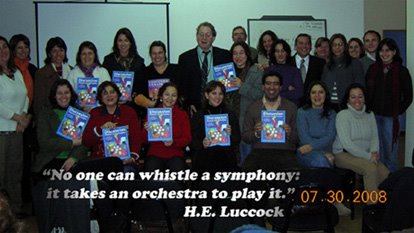


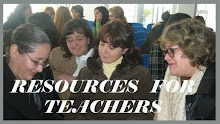













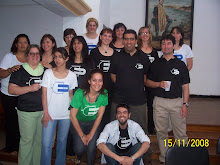







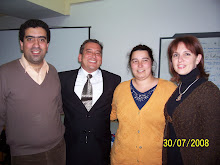

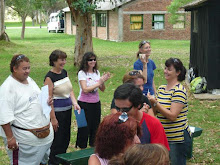



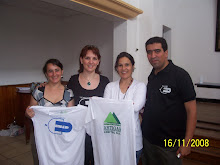

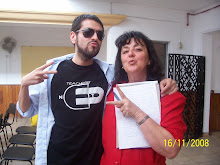


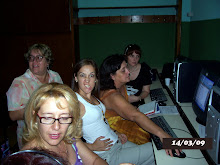

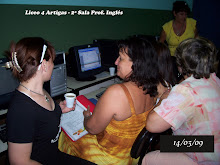

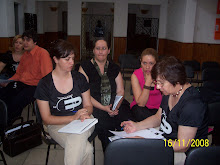
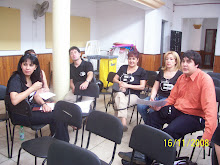

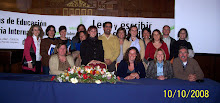



No hay comentarios:
Publicar un comentario